From Syria to Sweden: Eiad´s perilous voyage across the Mediterranean
Eiad’s wife did not want him to embark on the perilous journey across the Mediterranean Sea to safety in Europe, but Eiad believed it was their only option. They had tried to build a new life in Egypt, but after two years in the country, Eiad realized he would not be able to provide a good future for his young children there. “Life wasn’t very good in Egypt”, he explains. In spite of his wife’s protests, Eiad decided to risk his life in a rickety boat sailing from Egypt to Italy. His wife and children returned to Damascus. “I was more worried about the kids”, he says. “I thought that if my life will finish, it will finish anyway – in Egypt, in the sea, wherever.”
After one and a half months of searching, he made contact with a human smuggler. The price for getting to Europe: 2,500 dollars. “We went in a group so it would be cheaper. The safest way to travel to Europe is through Turkey but it’s much more expensive. Sometimes, it can cost more than 8000 dollars per person” says Eiad. He describes the five-day boat journey to Italy with more than 300 others as “hell”- people were thrown into the boat and the smugglers did not care if they fell into the water. “If they had animals with them, they would take better care of them because they’re worth more to them”, says Eiad. Still, there was a sense of solidarity between passengers. Eiad recalls how two people almost fell off the boat in their sleep but were caught by the other passengers.
After reaching the shores of Italy, Eiad headed towards Northern Europe and arrived in Sweden on 12 October 2014. Coming here was a great relief, but life as a refugee has its daily struggles. “I miss my family” says Eiad, explaining how he had to adjust to his new life at the asylum-seeker reception centre in Farsta, Stockholm. “Starting over is not easy and leaving your country without your family… it’s hard. A lot of people who came here didn’t want to leave their lives behind in Syria. But it is impossible to give them back the same life here…They are forced to change” he says sadly.
For 36-year-old Eiad, a former shop and restaurant owner, living a slower paced life at the reception centre is a challenge. He often plays cards with some of the other people at the centre to make time pass faster and sometimes he also plays football. “But I have a problem with my back so I can’t do too much sport.” He believes life moves slower in Sweden. “In Syria, we do everything fast. A lot of Arabs find this very frustrating because we are always in a hurry” says Eiad with a laugh,
“We want things to happen faster, and we want to be reunited with our families sooner.”
Eiad says he has not started his life in Sweden yet, not without his family. “Your mind is not clear, it’s with your family, your kids, and you’re waiting to see them.” But despite the continuing concerns for his family, Eiad is hopeful for the future. “I want to finish my studies or work and study at the same time. I don’t like to sit still.” He hopes to use the skills he acquired as a restaurant owner in Syria to start a small restaurant in Sweden, serving Syrian food.
Eiad’s application for asylum has just been approved and he is waiting to be reunited with his wife and two sons, who are still in Syria. “My children are very excited about coming to Sweden”, says Eiad with a big smile. “My wife is worried because she doesn’t know anyone here and it’s strange for her. But I think she’s going to like it. She is an English teacher” he says proudly.
Page 14 of 33
-
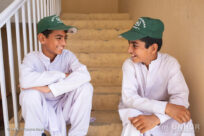
Danish funding helps provide education to Afghan refugee children in Pakistan
19.04.2022For over four decades, Afghans have been forced to flee their homes and seek safety in neighboring Pakistan. With Danish funding, young refugees can receive an education and the future opportunities that come with it.
-
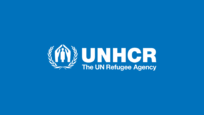
UN Refugee Agency opposes UK plan to export asylum
14.04.2022Following public announcements made today, UNHCR, the UN Refugee Agency, expressed strong opposition and concerns about the United Kingdom’s plan to export its asylum obligations and urged the UK to refrain from transferring asylum seekers and refugees to Rwanda for asylum processing. “UNHCR remains firmly opposed to arrangements that seek […]
-

Statement on risks of trafficking and exploitation facing refugees from Ukraine
13.04.2022The following statement is attributed to Gillian Triggs, UNHCR’s Assistant High Commissioner for Protection.
-
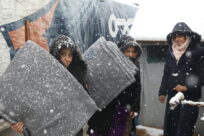
Stories from the Field: “The most rewarding is to bring about positive changes in people’s lives.”
05.04.2022An interview with our Norwegian colleague Jorunn Brandvoll in Tripoli, Lebanon.
-
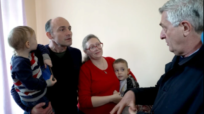
UN High Commissioner for Refugees calls for immediate end to Ukraine war, which has uprooted over 10 million people
01.04.2022Lviv, Ukraine – Visiting Ukraine for the first time since the Russian military offensive, UN High Commissioner for Refugees Filippo Grandi appealed today in the strongest terms for an end to the war, while calling on the international community to provide sustained support to the millions of civilians impacted by […]
-

Creative workshops help refugees in Lithuania integrate
30.03.2022UNHCR’s partner Artscape celebrates the role of art and creativity in building connections for refugees and asylum-seekers in Lithuania.
-
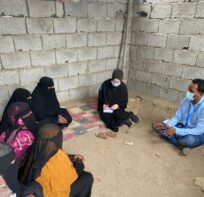
Stories from the Field: “This is one of the largest humanitarian crises in the world, but it is also one of the least known”
28.03.2022An interview with our Swedish and Danish colleague Marie Hesselholdt in Aden, Yemen.
-
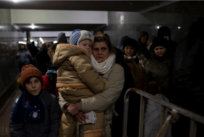
News comment: Without international solidarity, Ukraine’s displacement crisis could turn into catastrophe
24.03.2022Statement by UN High Commissioner for Refugees Filippo Grandi
-

UNHCR, Save the Children and the Swedish Red Cross host seminar on safe and legal pathways for refugees
24.03.2022UNHCR, Save the Children and the Swedish Red Cross co-organized a seminar on complementary pathways in Sweden with experts from the Swedish Migration Agency, civil society and academia.
-

High Commissioner’s message on the International Day for the Elimination of Racial Discrimination
21.03.2022Statement by Filippo Grandi, UN High Commissioner for Refugees
